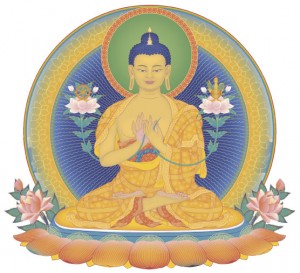The Sleep of Reason, circa 1975 - circa 1996
ANTISCIENCE AND THE SCIENCE WARS |
|
|
|
The branch of sociology variously known as Sociology of Scientific Knowledge (SSK) or Science and Technology Studies (STS), had the objective of showing that the results of scientific findings did not represent any underlying reality, but were purely the ideology of dominant groups within society. Consequently, if one held a sufficiently radical ideology, one could walk out of
a sixth floor window and be immune to the effects of gravity. Other absurdities of
SSK are chronicled at http://www.human-nature.com/articles/levitt.html
. The SSK/STS episode does however leave a residual question:
Why, as the STS fraternity might have put it, are scientific findings a 'privileged text'. And why is mathematics - a product of the mind - so unreasonably effective at predicting the behavior of physical systems?
|
From the mid 1970s to the late 1990s a cluster of irrationalist or anti-rationalist ideas became increasingly prevalent among academic sociologists in America, France and Britain. The ideas were variously known as Deconstructionism, Sociology of Scientific Knowledge, (SSK), Social Constructivism, or Science and Technology Studies (STS). The umbrella term for these movements was Postmodernism.
All forms of post-modernism were anti-scientific, anti-philosophical and generally anti-rational. The view of science as a search for truths (or approximate truths) about the world was rejected. According to SSK, the natural world has a small or non-existent role in the construction of scientific knowledge. Science is just another social practice, producing ``narrations'' and ``myths'' with no more validity than the myths of backward and pre-scientific peoples.
Thus the Genesis-based creationist myths [CREA1, CREA2 ,CREA3] of the Kansas Southern Baptists would be just as valid as Evolution.
Feminist and ethnic science
Furthermore, from the SSK viewpoint the scientific myths encoded a bourgeois
and/or Eurocentric and/or masculinist world-view. Consequently women [FEM1 , FEM2, FEM3 ] and various
ethnic groups [ETH1,
ETH2 ] would have to
develop their own forms of science which need not be as intellectually demanding as the
Western male variety....
"Before proceeding, two questions of interpretation merit consideration. 1. Do any of the feminist virtues have special standing, or are they of equal importance? In particular, can empirical adequacy be traded off against the other desiderata? The answer is not clear" from http://www.ed.uiuc.edu/EPS/PES-yearbook/1998/schrag.html Empirical adequacy means that the scientific model conforms to and predicts reality, but this can be traded off against a more feminist objective!
Postmodernism is now a declining influence in philosophy and science, thanks mainly to the work (including the famous parody) of Alan Sokal and Jean Bricmont [ SOK1, SOK2, SOK3, SOK4, SOK5.]
So what's the threat?
Although declining, postmodernism is still a strong influence, especially in
US university humanities departments. Postmodernism threatens Buddhism in three ways - (i)
Mixing and association (ii) Denial of universality and (iii) Legitimisation of
alternatives
Mixing and association
- Post modernism is an anti-rational belief system, whereas Buddhism, like science, is based on rationality (The Buddha told his students to put his teachings to the test of experience, and not just believe them because he said so).
- Post-modernism is on the way out. Any worldview which is associated with it is likely to suffer from intellectual stigma (guilt by association).
Fortunately, instances of mixing the Dharma with postmodernism seem to be rare. There appear to be only three sites on the web - POMBUD1, POMBUD2, and POMBUD3 . (In fact there may only be two, as POMBUD3 is almost certainly a Sokal style parody).
Denial of universality
- Like science, Buddhism is transcultural, i.e. valid for all people in all places. Science is a transcultural means of exploring the material world, Buddhism is a transcultural means of exploring the mental world. Postmodernism vehemently rejects transculturalism. (This isn't to deny there are cultural variants of Buddhism, but these are local 'user-interfaces', the underlying Dharma remains the same).
- To accept the postmodernist critique of scientific truths as being valid only in the cultural context of the modern West would also implicitly concede that the truths of the Dharma are/were valid only in the cultural context of ancient India.
Legitimisation of alternatives
The antiscience brigade, including peddlers of memetic religions
such as Christian evangelists love postmodernism. If
science becomes just one myth among many, then cosmology, geology, physics and evolution have no greater merit than the Genesis myth:
Quote: "To look at science as in some sense socially constructed offers a way in through the back door to religion as an epistemological partner in the construction/discovery of nature and culture. Religion, which has long been attacked and deconstructed as mythic delusion, can now claim some pragmatic parity with the scientific worldview that attacked it..." from http://www.users.voicenet.com/~grassie/Fldr.Articles/Postmodernism.html
To take postmodernism to its logical conclusion, consider a hypothetical situation where someone devised a meme which taught its (young male) believers that they have a duty to kill all unbelievers, and if they are killed in the process they will immediately go to paradise where they will be outnumbered 72 to 1 by nubile nymphomaniacs. Would postmodernists regard this meme as having equal validity with a spiritual path which was based on wisdom, tolerance and compassion?
To regard all religions as equally true is to regard them all as equally false. If rationality and reason are rejected in favor of cultural determinism, then religions with a strong philosophical basis such as Buddhism have no intrinsic advantage over the myths of the most benighted and primitive peoples.
Artificial intelligence?
Although computers are still (and always will be?) too dumb to
produce intelligent behavior, they are quite capable of churning out postmodernist
sociological tracts - try the postmodernism generator at http://www.elsewhere.org/cgi-bin/postmodern
.
- Sean Robsville
RATIONAL
BUDDHISM
If we regard Buddhism as a combination of a philosophy, psychology and religion, then how
much mileage can we get from the first two aspects before we have to start invoking
religious faith?
